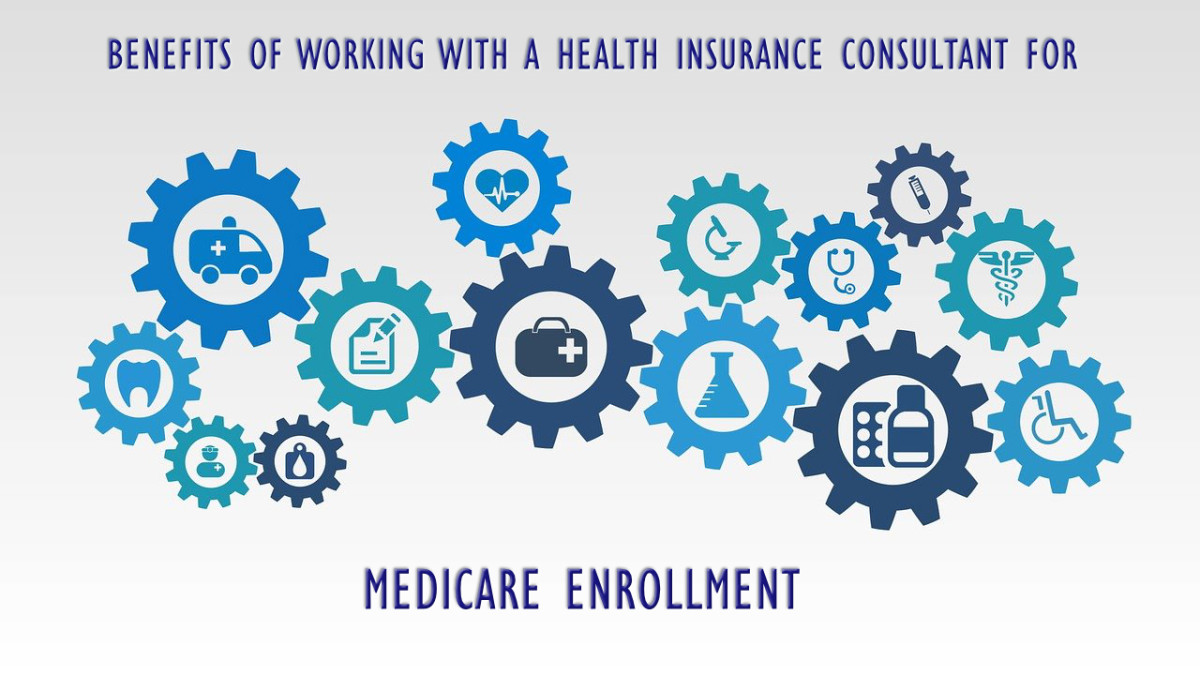Obtaining Services for your Special Needs Child.

Introduction.
If we are all about the meetings,
If we are all about the agenda,
If we are all about the budget,
Then who is there for the child's welfare?
For the past two years, I have been in the most head-on battle I have ever encountered.
Parents, wake up! The world is changing, and not for the better for your child!
If you are the parent of a child with special needs, please read and heed this advice.
You will need it. Because whether or not you believe what I write here, all children will be facing a consequence due to the actions of adults.
Adults that evade responsibility to this generation.
Adults that turn their backs on children born with a disability.
Adults that want nothing more than to sit around a table and talk about how smart they are, but fail to realize that it takes education to get that way! Education that will be denied to children with special needs if no one takes a pro-active stance against this abusive system in place that makes it difficult for needs to be met.
I'm speaking out loud and clear for the first time against societal ramifications that I have experienced and witnessed first hand over the course of two years. And it doesn't end well my friends. In fact, it stinks!
Services and Providers.
There is a distinct difference between professionals that render services to your child and providers that render services to your child.
Let's discuss the basics here. For the purpose of this article, let's break down a few basic definitions.
Services are those provided by educational institutions. Schools provide a service.
Providers are professionals such as doctors. Medical providers provide assistance in obtaining health care or medications.
Next, we'll go over each individually to note the differences.
Pediatricians.
Pediatricians handle medical basics for your child's health care needs. They can also provide referrals to specialists when your child needs more care than the pediatrician can provide.
Unfortunately, there is a huge gap here.
For one thing, insurance companies often require a referral from the pediatrician in order for a child to seek help from a specialist. This means that if a parent chooses to seek help without the pediatrician's authorization, the insurance company can deny any claims. This leaves the parent to pay for medical expenses out of their own pocket.
Secondly, pediatricians do not always know everything.
For example, if your child has frequent skin rashes, a pediatrician may conclude the child has dry skin and tell the parent repeatedly to put lotion on it. After many attempts, the lotion does nothing. The pediatrician insists it must be dry skin and there is nothing more to do than to provide lotion daily.
Quite frankly, the pediatrician upon multiple complaints should wisely refer the parent to a dermatologist, or one who specializes in skin conditions.
What's happening today is that a parent can't just provide a bottle of lotion to the child for itchy dry skin. The parent has to sign a release of medical information to the school, then the school sends that to the doctor, then the doctor sends a note back saying the lotion is fine.
Parents, this takes away our authority. In essence, the school will only take orders from a doctor, not a parent who knows their child best. (I can understand if the child needs eye drops during the day. Then a pediatric note is warranted. But how about for lip gloss or a bottle of water? At what step is it too far reaching to expect a pediatrician to take over authority from a parent's judgment? Ludicrous!)
But what's even more frightening is that certain medical conditions are worsening without proper treatment. Like in the case of itchy skin, that could very well be a symptom of allergies or Eczema. And by the way, I'm just using this as an example. I'm not saying this has happened to me.
Be prepared for the lengthy forms.
Every time you seek help from a different medical professional, be advised you will have to fill out numerous pages of paperwork. Keep a folder for every new specialist to help organize all of your child's medical information.
After a while, it becomes hard to remember what date you saw a certain specialist. And you will need to refer back to the documents or diagnosis at some point.
Specialists.
A child's medical care can be quite complex.
A pediatrician may establish that the child needs more defined medical care, and refer the child to one or more specialists to address a growing list of concerns.
Table A shows a list of common specialists and expertise.
Table A ~ Specialists and Expertise
Specialist
| Expertise
|
|---|---|
Child Psychologist
| Talk therapy/Play therapy
|
Pediatric Neurologist
| Genetic testing
|
Child Psychiatrist
| Medication Prescriptions
|
OT/Occupational Therapy
| See Table B
|
PT
| Physical Therapy
|
Behavior Therapist
| Behavior Modification/Social Skills Groups
|
Hospitalization
| Due to behavior issues/harming themselves, pychosis, or medicine re-evaluation
|
Partial in-hospitalization
| Daily structured treatment program outside of the home
|
Dermatologist
| Skin conditions
|
ENT
| Ear, nose, throat (including congestion/nasally sounds which may interfere with speech)
|
Be prepared for each appointment!
|
|---|
I cannot stress enough. If you have other children that you need to bring with you to any appointment for your child with special needs, bring lots of goodies. Pack a bag with snacks such as crackers or cheerios (age appropriate), bottled water, and toys. Some ideas are coloring books and crayons, hand-held video games, a goody bag with party favors new each visit to keep the child entertained!
|
Ruling out epilepsy.
Some professionals don't even realize that strobe lights are introduced during testing for epilepsy. I had someone once demand I take my son to a second evaluation with strobe light introduction and was told that it's always included in the test.
This just goes to show that parents are being misinformed by professionals who are supposed to know what they are talking about!
What referrals really mean.
Just because a pediatrician refers your child to a specialist, the referral itself is not an indicator of a serious medical problem.
In fact, in speaking with other families, I've learned that pediatricians often refer children to specialists or for medical testing simply to rule out something else.
For instance, a friend of mine had a son who was having behavioral issues in school. The pediatrician referred the child to a specialist who treats epilepsy. The child didn't have epilepsy, but the pediatrician wanted to rule epilepsy out as a cause of the behavior.

Working with a Child Psychologist or Therapist.
Here's what to expect when your child begins treatment with a Child Psychologist or Therapist.
The first thing to note is that not all psychologists are the same.
Some are experts in a certain area such as Autism or Down Syndrome.
It's very difficult locating a therapist on your own. You will most likely need a referral from your doctor.
At the first meeting, establish whether or not the therapist accepts your child's health insurance. Ask how much your co-pay will be. Also, confirm this information with your insurance company.
Many times, your insurance company will go over explicit information with a billing staff of the medical provider, but they fail to tell you how much you will really owe out-of-pocket.
This step is extremely critical because you do not want to find out that your child's therapist is actually not covered, and you end up owing a large sum of money. You don't need this added stress and aggravation. Do not rely on the office to explain it to you. Get the information yourself first hand.
Also, expect the therapist to refer your child to additional services. These might include:
- Psychiatric evaluation for medicine
- Hospitalization program for out-patient behavior modification
- Occupational Therapy
- Physical Therapy
Wether or not those particular specialists apply in your child's situation, expect that the therapist will refer you to more places that the pediatrician. The therapist will know whether or not the child needs a medicine evaluation for needs other than strictly medical. For example, your child's therapist will refer you to a psychiatrist to get a medicine evaluation for ADHD symptoms.
If your child exhibits worsening behavior, never hesitate to call your child's therapist. However, if the therapist refuses to see your child or misses an appointment because they are disorganized, find someone else.
There are many therapists, but there are not many therapists that work with children with special needs. It's a huge problem, especially in my area, because there are only a few therapists and there are many children that need one.
Keep a notebook of medical conversations.
|
|---|
Write all of your notes in one place pertaining to each event or call. Keep mutliple notebooks if need be. Make sure you write down:
|
date of call(s) ~ even if there is no conversation (if you just leave a message)
|
time of calls(s)
|
name of representative
|
confirmation number (if applicable)
|
Working with a Case Manager from an insurance company.
If you are not getting help, or feel that the pediatrician and therapist aren't doing enough, you have every right to call your insurance company.
Ask for a Case Manager. It's free. A Case Manager is often a nurse or social worker who is employed by the insurance company. They have a separate phone line so you don't have to call the number on your insurance card every time you need assistance.
A Case Manager will work with you in the following ways:
- They will accommodate you with regular phone conversations about progress.
- They will help you find medical providers for your child.
- They will call medical providers if you are unable to retain someone.
- They will help research in your area some special needs friendly services such as sensory-friendly movie theaters.
- They will also be there to talk to when you have a legitimate complaint about a medical provider.
How to obtain a Case Manager.
Call your insurance company at the number on the child's insurance card.
Ask to speak to a Case Manager. Normally, there is a turnaround time of 24-48 hours. It helps to call in advance if you are scheduled for medical services and waiting for an appointment, that way you will have a Case Manager on your team from the beginning.
Working with a Child Psychiatrist.
Child Psychiatrists evaluate your child to see how and what medications are available to help their individual needs.
Most often times, Psychiatrists will either have a rule or not about Therapists. So for example, some psychiatry groups will insist that your child sees a therapist from their group. Others, do not. Meaning, if you have a therapist your child has been seeing, some Psychiatrists will allow your child to see a therapist independently from their group.
Others, require that your child stay within their group and see a therapist and a psychiatrist from their office. This keeps the child's file all together, which is a good idea.
However, in my area, I could not find a group that had both.
We had to use a separate group for therapy and a separate group for medicine.
So that's just something to keep in mind.
Don't be alarmed if you are suddenly told you have to switch therapists or the psychiatrist will not evaluate your child.
Also, be warned. If your child is first seen at a hospital setting, instead of a private psychiatry setting, the hospital will start your child on medication. However, the Psychiatrist may have a rule to stop the medication and start over after their own evaluation.
This can complicate matters further if your child suddenly starts doing so well because of the medication and now has to stop it because the new group insists. It's not fair, but it's reality. So once again, it's best to keep your child on the medicine that works! But it's not always possible because of the rules of each different psychiatric group.
Table A ~ Occupational Therapy
- sensory integration (SI)
- neurodevelopmental treatment (NDT)
- therapeutic listening
- handwriting support
- daily living activities
- aquatic therapy
- social skills group
- modulation skills group
- upper extremity strength and endurance groups
- handwriting skills groups
Working with schools.
Each state is different. Each town is different.
There are different rules. There are different ways teachers conduct a classroom.
Children with special needs require different services based on disability.
Some children are wheel-chair bound. Some children use hearing devices. Some children need special glasses. Some children need services as well such as speech therapy, occupational therapy, and a helper in the classroom.
Long ago, it used to be when a child had special needs, the child would be segregated and placed in a special needs classroom with a special needs teacher.
Today, children are mainstreamed in the classroom with a helper.
Here's the problem.
Some people feel that a helper is unnecessary and stifles independence. They don't feel that the helper is conducive to the child's learning environment.
Others feel that without a helper, the child would not be able to get through the day, never mind learn anything at all.
One parent expressed that her child needs a reading helper. The helper reads the tests to the child so that the child can answer the questions. This child has Down Syndrome. She is not capable of completing a test without the helper. The school has decided though that educating the child isn't as important as making the child an independent learner. They have proposed to take away the helper over the next three years. In protest, the parents feel that if the helper goes away, the child will once again be secluded and not be able to attend a regular classroom.
My question is, doesn't a helper and learning go hand in hand? How can the school achieve independent learning if there is no one to help the child learn?
In another discussion, I learned that teachers are going to be held accountable for all of their own students. In other words, all students have to be above a certain percentage in academics for the teacher to keep their job. This means, if there are no helpers, and there are children with special needs in a classroom, the teacher will be solely responsible for creating independent learners. The teachers will not receive help and the children will not receive help.
Some say that there should be no need for a helper. Well, I disagree. Each student is different. How does anyone expect a child with a handicap to sit at a desk all day like all the other children, and not interrupt the class repeatedly, or stay in their chair for that matter, or be able to learn independently when they were born with a disorder that prevents them from doing so?
Parents and teachers alike, this is coming to a school near you fairly soon. If you do not believe what I write, and you are concerned about it, call your state's Board of Education and find out for yourself.
Ask the following questions:
- How many helpers are there overall in your school district?
- Have there been or will there be any lay offs in the school district?
- What percentage of the state is special needs children?
- What percentage of your town, or individual towns, is special needs students?
- What town has the highest rate of special needs students?
- Does your town have a higher rate of special needs than the overall state rate? (For example, the state has a rate of 10%, but your town has 15%.)
- Does trending data indicate there are more families moving to or away from the area?
Also, are helpers allowed to attend PPT meetings? Are helpers allowed to review the IEP?
In my town, helpers are allowed to review IEPs on file, but not directly on the computer as they are not given permission to log on to the database. They are not however, allowed to attend PPT meetings.
How does your town handle communication between parents, teachers, helpers, and school administrators?
The teacher-student-monument in Rostock, Germany, honoring teachers.

Fitting the pieces together for the most beneficial outcome for your child.
So what's the problem, and why am I writing this article?
Well, first of all, I have a child with Autism. He wasn't diagnosed though until he was older.
I went through a tremendous time, devastating financial repercussions, and a battle I thought would never end. I wanted to set forth what I've learned so that maybe another family could learn from it and find this information beneficial to their child.
The real problem is there is a disconnect in society. No one wants to take responsibility.
The school will provide what they legally have to.
If the child acts up in class, they take away art.
If the child behaves inappropriate in class, they stick them aside in a calming room.
The school brings a budget and an agenda. They follow the state's mandates and that's it.
Don't even think as a parent, you will change the school. There is only one way to do that and it's not through sitting in meetings or expressing yourself. The school administration will dance around your words, and they will evade your concerns. They will not accept any obligation to do anything extra for your child that they legally do not have to do. Follow the money.
Don't blame the teachers. They work for a living like anyone else. It's not their fault. They have no control over what the state decides is legally mandatory for each school. The teachers are on the front lines with your child. You need them as much as your child does. And this is being said even after I homeschooled my own children for a while. Because let me tell you, the teacher is your friend. The teacher is there for your child every day. Your child learns to read and write because the teacher is there. And that's important because if the helper is taken out of the classroom, not only does the child suffer, but so does the teacher.
The disconnect is this.
Your child has special needs. If your child was born with a disability, it was recognized and dealt with from day one. If your child was born with Autism, there may be a delay when the diagnosis is actually issued, even much older children are being diagnosed as late as middle school.
When your child needs services and providers, there isn't just one place to get all of it. Your pediatrician refers you to a therapist. The therapist refers you to three different places. Pretty soon all you do is go to appointment after appointment. Your child is in school and the school deals with issues in their own way.
When you go to your child's private therapist, they might help you through meltdowns by telling your child about red light and green light. Red light means whoa, too much energy in the room, let's calm down. Green light means the child is calm and ready to listen.
But as I found out, the school doesn't have to follow what the therapist taught my child, the school follows what they do.
Why is that a bad thing?
Because there is a disconnect. There is no connection between all of these services. Everyone is going in a different direction. How does that not confuse a child?
What is a Care Coordinator?
|
|---|
Care Coordinator A professional care manager, usually with a background in health care, provided by a long-term care insurance company. The Care Coordinator works with the insured and the insurance company to create a plan of care when a long-term care need arises.
|
Working with a Care Coordinator.
You may or may not have a Care Coordinator in your area.
A Care Coordinator provides a level of service to the parents. It's normally free if you go through a nonprofit agency. However, there are professional private Care Coordinators that do charge a fee.
This is quite a process in itself.
A Care Coordinator would be most beneficial in the initial stages of diagnoses. But as I have found out, even when you've gone through several years of medical providers and school issues, a Care Coordinator can bring some new ideas to the table, but most often just causes more disruption to your life.
I'm very thankful for the experience I had with a Care Coordinator. My son would probably not have had the opportunities he had without her help.
But, the point is, if you are just starting out, now is the time to procure a Care Coordinator. Not, after you have multiple diagnosis, hospitalizations, etc. By this time you are broke and tired. So there's not much left for a Care Coordinator to do except complicate your life with more meetings, more appointments, and more stuff!
The undignified process.
There is no dignity in a process which inhibits the growth of a child so desperately in the need of competent medical care.
Yet that's exactly what this two-year journey has brought me to. A very humble approach to teaching others how to help their child.
What you need to know about seeking a specialist for the first time:
- When your child is identified as having a disorder, it's ok to ask your pediatrician where to turn. Do not rely solely on referrals from a pediatrician who has limited knowledge and expertise of your child's diagnosis. Many disorders are broad reaching with various factors. Research your child's diagnosis online and find out what other parents have done before you.
- Do not think you have to reinvent the wheel. My pediatrician sent me to a specialist who had no experience in what we were asking of her. We spent a year re-inventing what other parents have already created before us (because the specialist wasn't up-to-date on new medical research and techniques).
- Before meeting with a specialist, get a notebook and write down any questions you may have including concerns you read about online. All of your questions and concerns are legitimate. Your child is your responsibility. If a specialist ever invalidates your questions, stop going to them and find someone else. (It doesn't mean you do not have legitimate concerns. It means the therapist isn't interested in your child as much as you are. You have the right to seek professional guidance from someone who has as much information to offer as you have to ask for.)
- Stay in contact with your insurance company. If a specialist ever tells you that your insurance company has not agreed to pay for their services, call your insurance company in front of the specialist or staff member questioning your coverage.
- If your specialist comes across as threatening you more than helping your child, stop seeing them immediately and report them if necessary. There are many specialists qualified to assist you in your child's medical endeavor. You do not have to be victimized by overzealous specialists in it for a paycheck! This is YOUR child's medical care they are messing with!
- If your specialist misses appointments, find someone else immediately. This will tell you the same type of sloppiness they put in to their work will carry over in to your child's medical care.
- If your specialist's office staff doesn't seem to care about you and treats you like just picked a number at a deli line, do not go back. Cancel future appointments and move forward.
- The specialist you are referred to should be open; willing to communicate (even possibly by cell phone after hours and through email); willing to listen to every question; willing to take the time to meet with you alone after initially meeting your child; accepts your insurance and is honest about it if they don't; has flexible availability for making appointments; and has a neutral personality that you can agree with.
Do you feel your child with special needs has been treated fairly at school?
Is there a cure?
I never like using the word disability. I believe all children have abilities!
However, for the point of this article, I used that word to get across what is really happening right now before our eyes.
Children with diagnosis are the most precious. They rely on us! They rely on adults! They trust us with their lives. Their growth depends on us! Their education depends on us!
Shame on adults who close their eyes and turn away from the needs of our most vulnerable in society.
Is there a cure for adults who act this way? Is there a cure for adults who had no compassion and who bring a budget to a table before the welfare of a child?
Words cannot express how disheartening and disgusting this process has become.
And it's a war! It's a war for parents who have children who have not yet been diagnosed or who have not yet been through the system.
Heed my words. Please. If it is the only thing you do, don't take my word for it, look in to it yourself.
Change is going to be coming. It's going to devastate teachers and special needs students alike.
Why am I speaking out? For the voiceless. For the ones who cannot speak for themselves!
Keep organized through the process.
Here are some helpful ways to stay organized.
- Keep a home calendar on a wall in a common area of your home, such as your kitchen.
- Keep a white board on the fridge with appointments coming up in the week.
- Keep a pocket calendar and notebook to take quick notes on the go.
- Keep a journal for all calls and information pertaining to your child.
What I would like to see in the future:
- Insurance companies should automatically assign case managers to children who are diagnosed with long-term medical problems (not just special needs) that have no cure.
- Streamline health services so that medical needs are met in a consistent progression for all patients with the same diagnosis.
- There needs to be a connection between what therapists teach to children. Techniques should be applied in schools. Teaching different methods of behavior intervention don't work unless all hands are on deck.
- There needs to be open dialogue communication between parents and schools. Not just dictated direction to certain school employees that they can only talk to parents under the school's authority.
- There needs to be kindness, compassion, and heart for children with special needs.
Let's not go back to segregating children because they are different!








